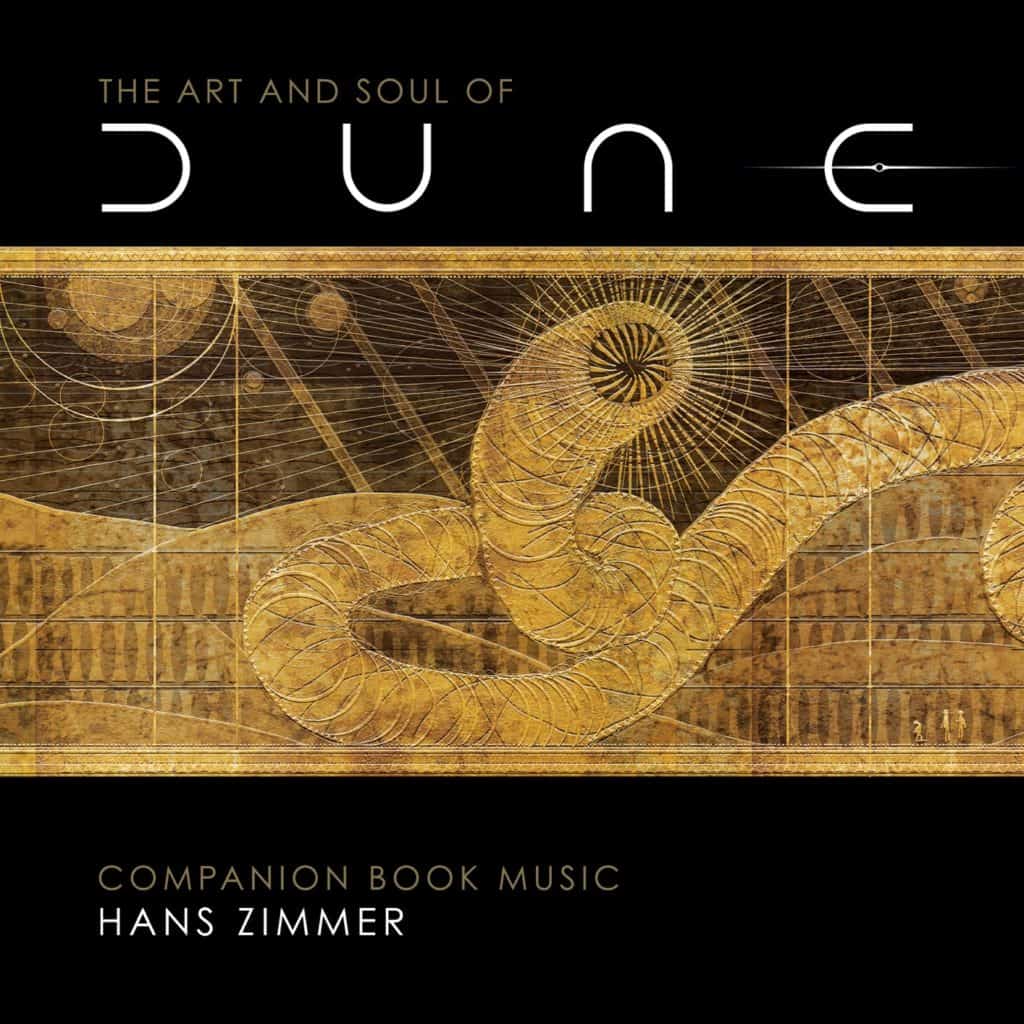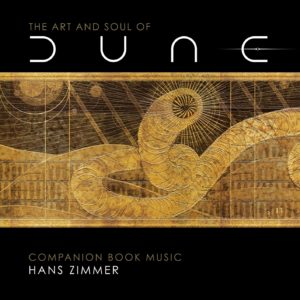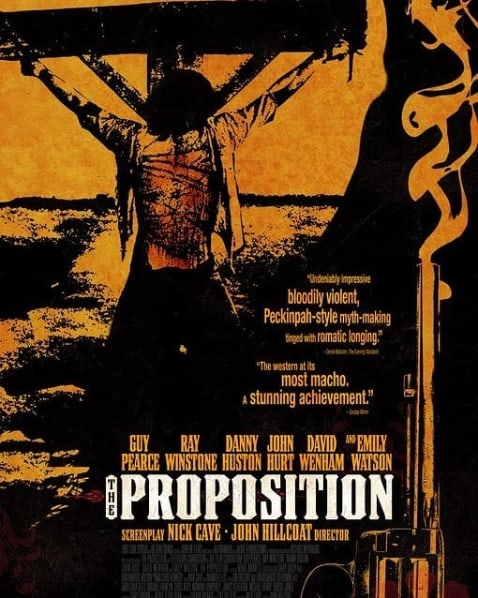
2021’s Dune has birthed three Hans Zimmer music releases: The Dune Sketchbook, Dune, and The Art and Soul of Dune. The Sketchbook consisted of a series of concepts, experimentations, and ideas that Zimmer and his team created for the film, offering an interesting look into the creative process. The score sharpened some of these ideas and discarded others, narrowing the musical focus. Both releases (and the film itself) have seen generally high praise and attention and raked in hundreds of millions of dollars. Meanwhile, The Art and Soul of Dune has been relatively ignored.
The main reason is that The Art and Soul of Dune deviates so much from what we consider film music. Of course, this is because it isn’t. Instead, it’s a companion to the book of the same name: listen as you gaze upon page after page of dazzling, enthralling concept art, stills, and designs.
To achieve this subordinate position, Zimmer turned to an almost pure ambient approach. It’s a genre that Zimmer has never really tackled and is also rarely seen in film music (the collaborations between Harold Budd and Robin Guthrie being some of the most notable). The album focuses on the score’s broader musical palettes to create enveloping soundscapes representing various aspects of the film, such as the four planets visited and the Fremen.
For example, “Salusa Secundus” features a stretched-out rendition of the Sardaukar priest’s ritualistic throat singing, light industrial elements, and what sounds like warped, echoing breaths. It’s unsettling and desolate, a grating future horror that represents the harsh, hostile conditions of this prison planet. Zimmer and co. repeat this throughout, modifying and stretching instruments and melodies from the score into new creations that feel both familiar and completely unknown. Depending on the track, it’s easy to imagine yourself viewing the endless sands of Arrakis or choking on the harsh, industrial air of Giedi Prime.
But The Art and Soul of Dune perhaps relies too much on the familiar. It’s largely a product of the film’s score that adds little new material. Instead, it drops us into moments we already know and have already seen and heard without ever expanding upon these worlds or giving the listener something to explore, whether by ambiguity or new layers to uncover. The release is still effective in its intent, after all it’s supposed to accompany a book full of Dune’s art. But great pieces of media music should also be able to exist on their own, independent of the property for which they were created. Because The Art and Soul of Dune is so intertwined with the film and its score – and reliant on them for its effectiveness – it’s unclear whether it would have the same evocative effects for someone unfamiliar with them.



